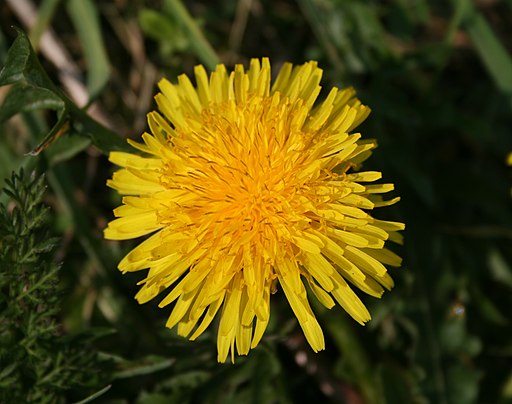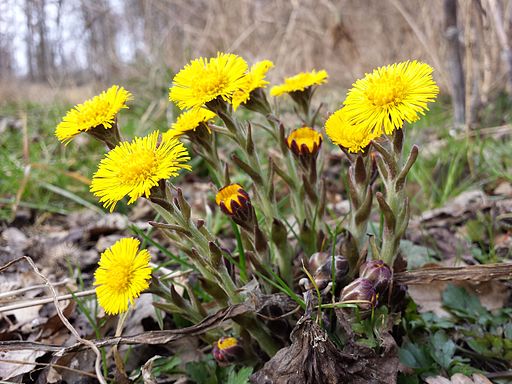Taraxacum officinale

Also known as blowball, lion’s-tooth, witch’s gowan, milk witch, yellow-gowan, Irish daisy, monks-head or priest’s-crown.
The story…
Dandelion is native to Asia and Europe and now very common on all five continents: it grows in meadows and roads on light soil, any kind of grassy areas, on the coast and in the mountains, as well as on walls and loose stones. The name dandelion comes from the French dent-de-lion, literally lion’s tooth (referring to the form of the leaves), and is close to the name given to the plant in 12 languages, including German, Italian, Romanian and Danish.
Uses
Depuration and digestion
Dandelion roots have a hepatic effect: they improve the functioning of the liver when engorged and in case of gall bladder disorders, which eases waste circulation and elimination. They also contain antioxidants protecting the liver against aggressions.
Roots act on chronic constipation by increasing the bile output; on difficult digestion (in particular hepatobiliary insufficiency making fat digestion difficult) and cholesterol excesses. They whet the appetite for recovering people. Drink a small decoction before the meal.
Diuretic
Leaves have a diuretic effect, which helps to prevent urinary insufficiency and to ease water retention (including premenstrual water retention) and oedema, as well as joint pain caused by waste elimination issues. Drink infusion as a cure during a week.
Leaves are also very rich in vitamin C, K and β-carotene.
Preparation
Young leaves, roots and flowers can be eaten with a salad or cooked food. Leaves can also be added to a juice (one or two tablespoons, 3 times a day).
Infusion: 30g leaves per liter water, one cup 2 to 3 times a day.
Decoction: 3 to 5g roots per cup, 2 to 3 times a day.
Precautions
Contraindicated for people suffering hypotension, cardiac or kidney issues, taking certain drugs acting on the liver, or pregnant and nursing women. In case of gallstone or allergies to the Asteracea family, consult a doctor before starting a cure. In case of persistent symptoms or if you have any doubts, consult a doctor.
